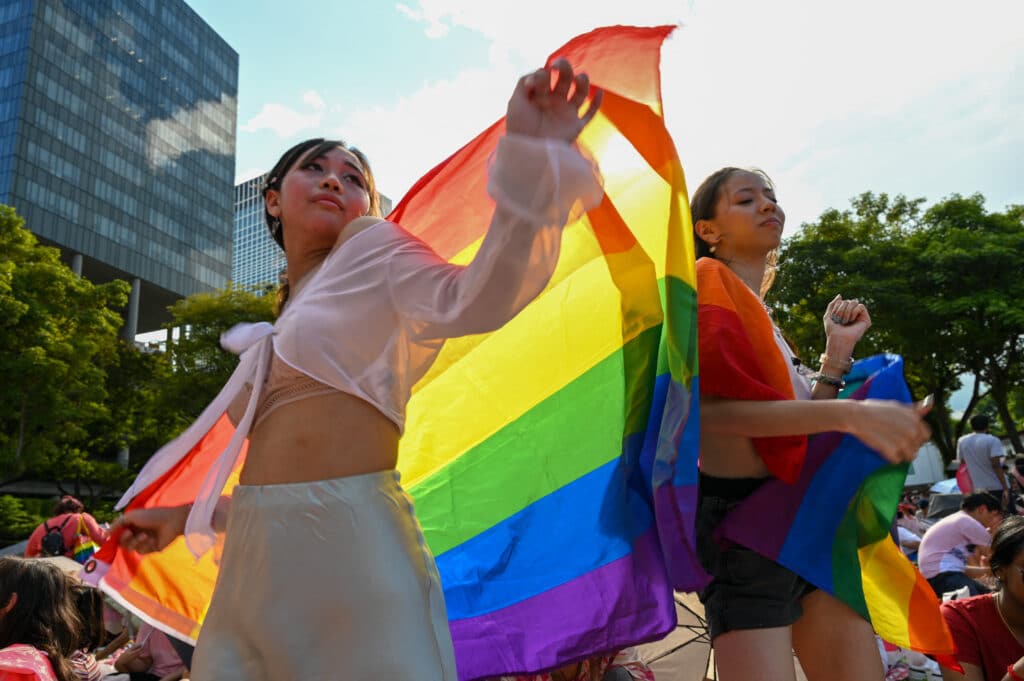
Section 377A – introduced in 1938 when the city-state was under British colonial rule – bans consensual, same-sex sexual activity between men, and anyone found guilty of breaking the law can face up to two years imprisonment.
The government is reviewing the archaic regulation but is also considering how it can “safeguard the current legal position on marriage from being challenged in the courts”, law and home affairs minister K Shanmugam said on Saturday (30 July), according to Bloomberg.
Same-sex marriages in Singapore are currently considered void, and Leow Yangfa, executive director of Singapore LGBTQ+ group Oogachaga, said there were “no immediate plans to mount legal challenges to redefine marriage as it presently stands”, according to Channel News Asia.
The Catholic Church sided with the government and stated that while it supports LGBTQ+ people, its stance on marriage will not waver.
“The fruitfulness of marriage also necessitates that marriage must be open to procreation,” the Roman Catholic Archdiocese of Singapore said.
“We applaud and support the government’s clear articulation of its position on marriage and are assured that they are looking at safeguarding their current position of the law which defines marriage as being between a man and a woman.”
“It is our hope that the safeguards on marriage and our freedom to proclaim and teach without fear or favour what we believe is recognised and maintained,” it concluded.
As Singapore attempts to make society more inclusive for its LGBTQ+ community, other Asian countries like Thailand have also made progressive strides.
Thailand became the first country in Southeast Asia to move toward legalising same-sex unions this year.
Previous efforts to overturn Section 377A have been met with failure. In February this year Singapore’s top court dismissed a challenge to the law. At the time judges said LGBTQ+ people “do not face any real and credible threat of prosecution” under the law.
